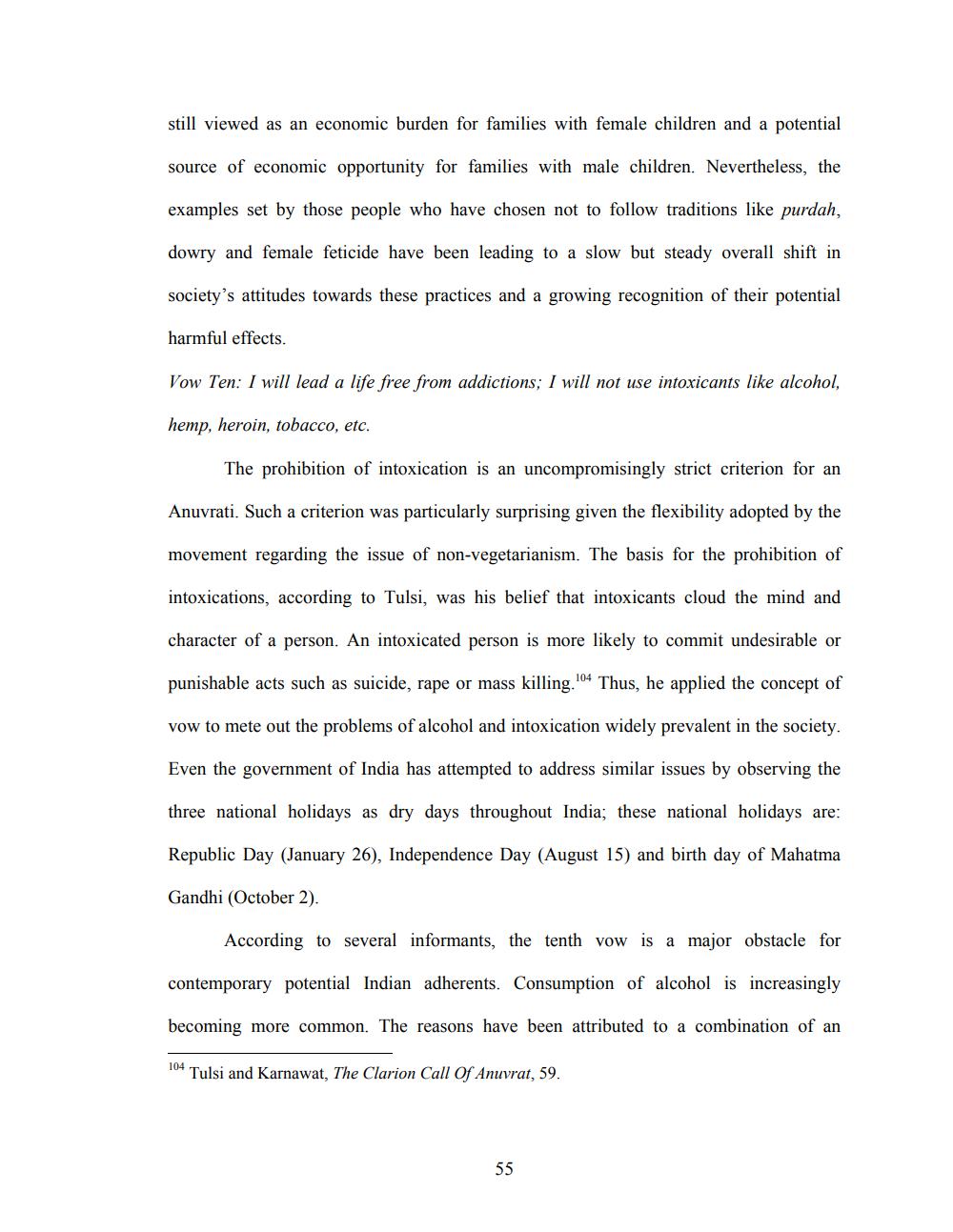________________
still viewed as an economic burden for families with female children and a potential
source of economic opportunity for families with male children. Nevertheless, the
examples set by those people who have chosen not to follow traditions like purdah,
dowry and female feticide have been leading to a slow but steady overall shift in
society's attitudes towards these practices and a growing recognition of their potential
harmful effects.
Vow Ten: I will lead a life free from addictions, I will not use intoxicants like alcohol,
hemp, heroin, tobacco, etc.
The prohibition of intoxication is an uncompromisingly strict criterion for an
Anuvrati. Such a criterion was particularly surprising given the flexibility adopted by the
movement regarding the issue of non-vegetarianism. The basis for the prohibition of
intoxications, according to Tulsi, was his belief that intoxicants cloud the mind and
character of a person. An intoxicated person is more likely to commit undesirable or
punishable acts such as suicide, rape or mass killing. 104 Thus, he applied the concept of
vow to mete out the problems of alcohol and intoxication widely prevalent in the society.
Even the government of India has attempted to address similar issues by observing the
three national holidays as dry days throughout India; these national holidays are:
Republic Day (January 26), Independence Day (August 15) and birth day of Mahatma Gandhi (October 2).
According to several informants, the tenth vow is a major obstacle for
contemporary potential Indian adherents. Consumption of alcohol is increasingly
becoming more common. The reasons have been attributed to a combination of an
104 Tulsi and Karnawat, The Clarion Call Of Anuvrat, 59.
55




